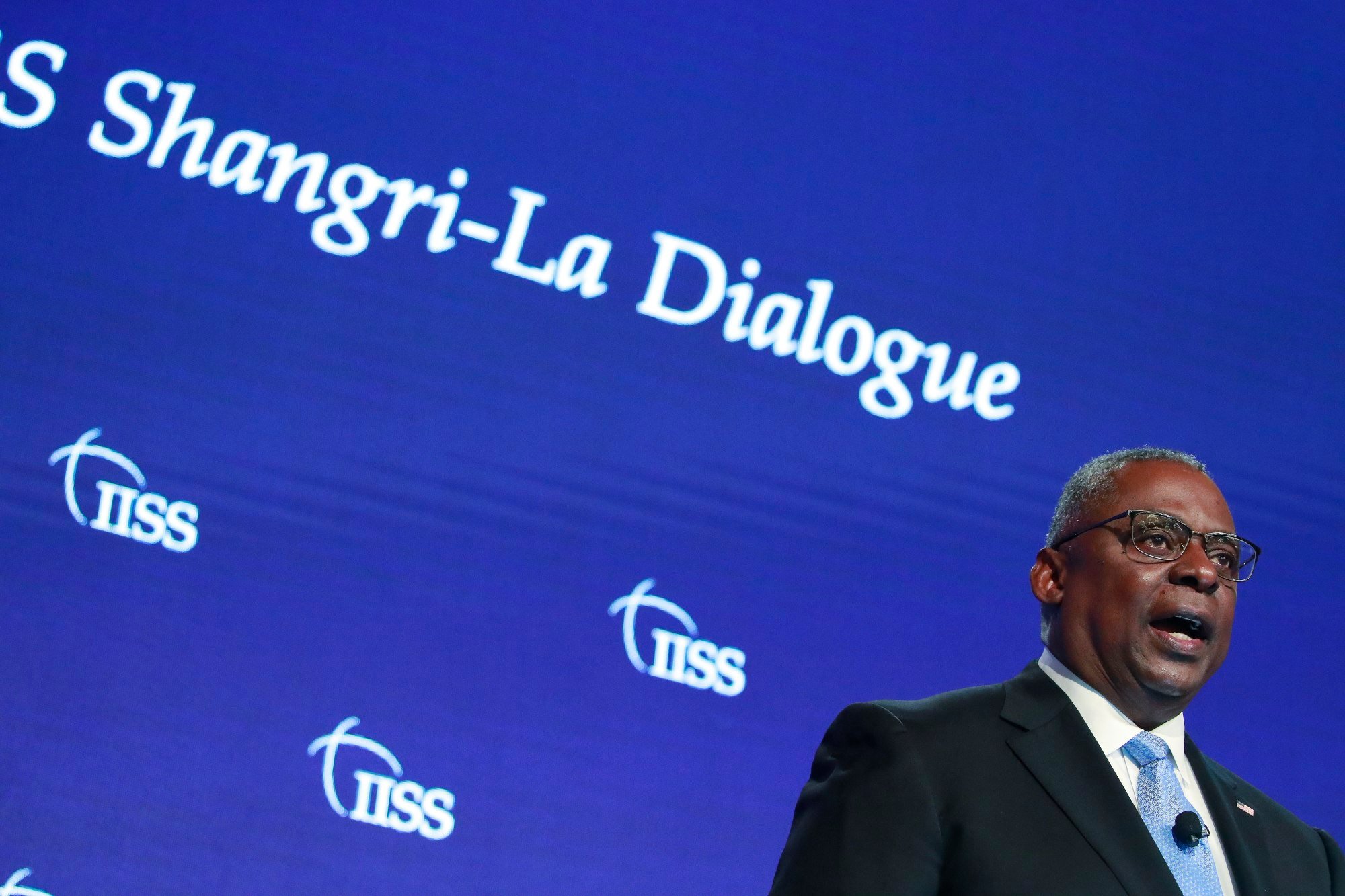Shangri-La Dialogue: China’s new defence chief Dong Jun expected to take tough stance in security summit debut
Beijing’s participation at this year’s Shangri-la Dialogue, to be held from Friday to Sunday, comes just days after it conducted two days of large-scale military drills around the island of Taiwan that Beijing said were meant to “punish” Taiwanese independence forces. The exercises drew concern from several countries, including the United States, Japan, Australia and the European Union.
The military drills around Taiwan, which were aimed at testing Beijing’s capabilities to blockade the island, were in direct response to Taiwanese leader William Lai Ching-te’s presidential inauguration speech on May 20, which Beijing said was provocative and sent out a “dangerous signal” on Taiwan independence.
The exercises also came after months of intense confrontations between Chinese coastguard vessels and their Filipino counterparts in disputed waters in the South China Sea.
The Chinese delegation led by Dong is prepared to use the platform to assert itself in the face of Western criticism for its manoeuvring around Taiwan and in the South China Sea, according to Collin Koh, a senior fellow at the S. Rajaratnam School of International Studies in Singapore.
“Beijing likely already anticipated Taiwan and South China Sea issues will be raised in the forum, but it probably already also prepared to stand its ground on these to stave off sharp questions and comments that are expected from delegates anyway,” Koh said.
However, unlike his counterparts in the United States and other Western countries, as China’s defence minister Dong’s role is primarily as a public representative of the armed forces who mostly handles military diplomacy.
Moreover, Dong’s full promotion appears to be provisional.
Unlike his predecessors, Dong is not yet a member of the Communist Party’s Central Military Commission (CMC), the body that holds the actual command power that is chaired by President Xi Jinping.

“The PLA defence minister does not command any troops, does not have control over budgets … and at this point is not even a member of the CMC, so he has no decision-making authority, and is a poor counterpart to the [US] secretary of defence who oversees the defence department and sits in the president’s cabinet,” said Drew Thompson, a visiting senior research fellow at the Lee Kuan Yew School of Public Policy, at National University of Singapore.
Beijing has yet to confirm if there will be a meeting between Dong and Austin during the forum – a platform for bilateral and multilateral engagement between defence officials – while the Pentagon said last week that Austin was preparing to meet Dong during the forum.
Dong’s predecessor, Li, had only met Austin briefly at the 2023 Shangri-la Dialogue, which amounted to a handshake and a brief exchange of words. Li was still on a US sanction list at that time over the purchase of military hardware from Russia’s main arms exporter.
Thompson did not have high expectations for a meeting between Dong and Austin which he said could be “performative, intended to signal other countries rather than a sustained, concerted effort to manage differences”.
Koh, from Singapore, said: “If Dong and Austin meet, they’re likely going to stand their ground on the respective national policies but are likely to agree to seek to maintain crisis stability where possible … Both Beijing and Washington plausibly recognise the growing need to maintain viable strategic communications.
“In view of the potentially escalatory scenarios over [the South China Sea] and Taiwan, maintaining this link becomes all the more crucial,” Koh said, adding that he had yet to see both countries fundamentally converging on how they view confidence and security-building measures that are designed to reduce the risks of conflict.
Ni Lexiong, a Shanghai-based military analyst, said one “obstacle” for the two defence chiefs had been removed since Dong was not under US sanctions, but he played down the significance of the meeting given the current military rivalry between the two sides.